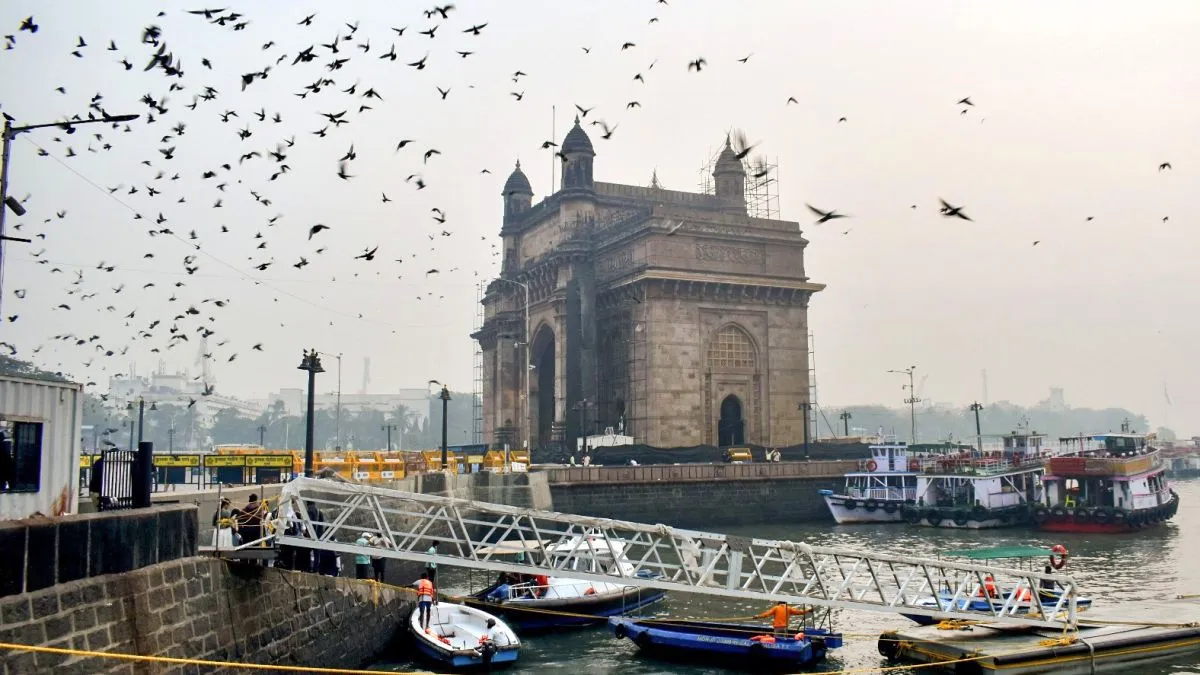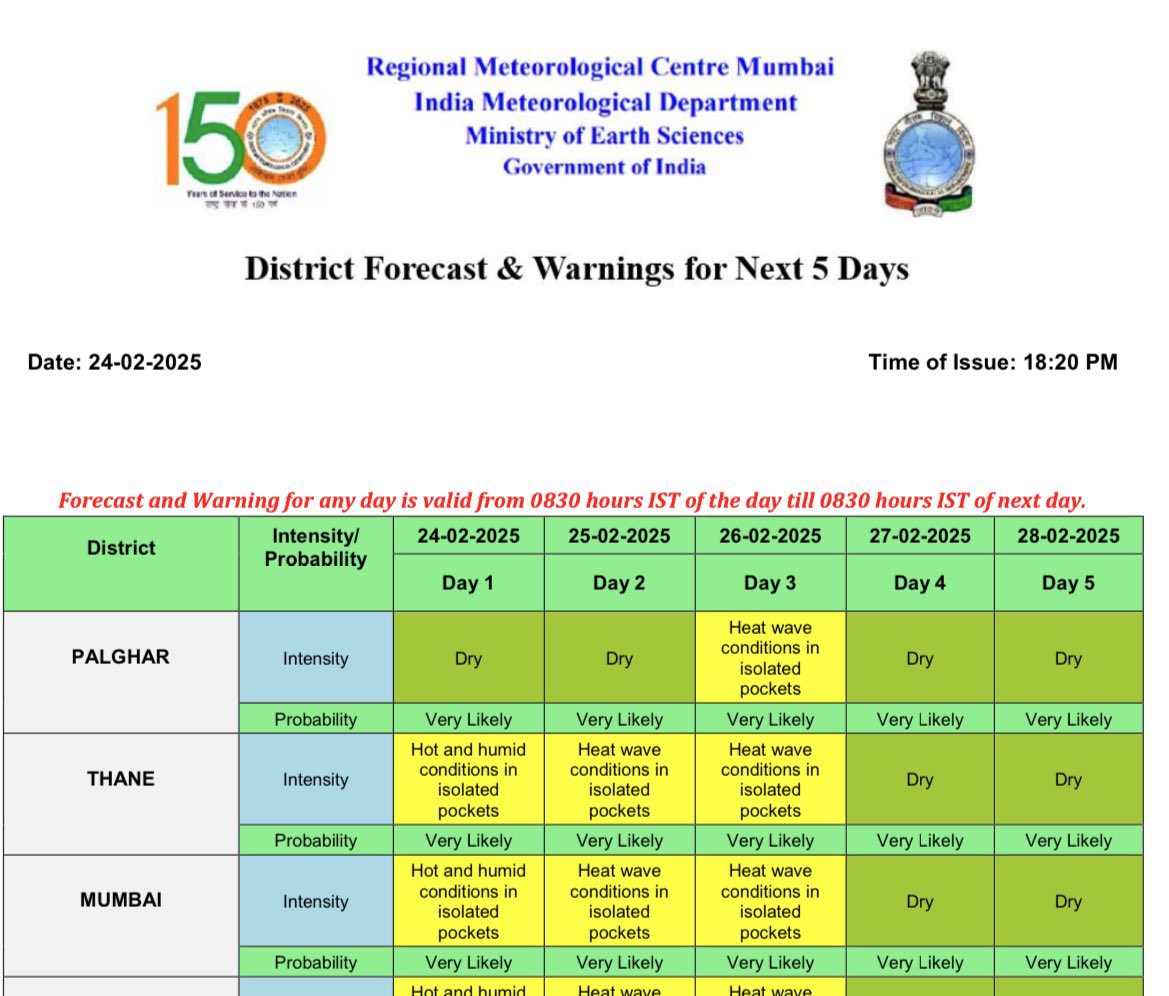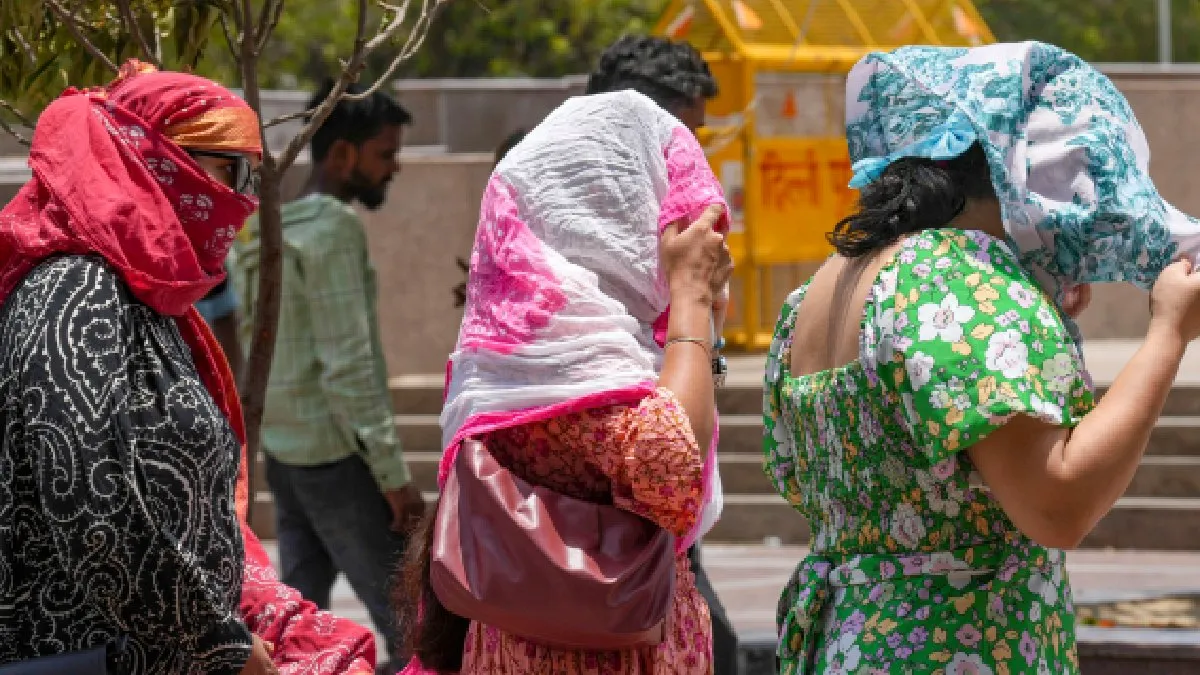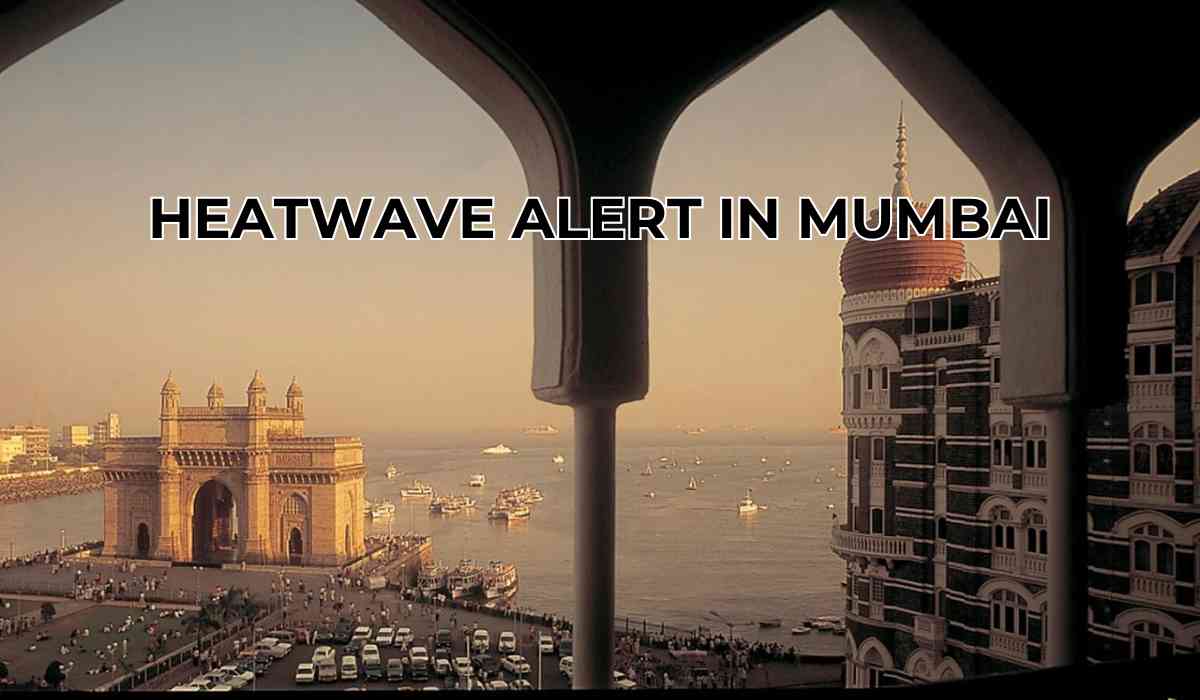As the country transitions out of winter and looks ahead to the warmer months, February—once considered a pleasant period before the summer heatwave—has proven to be anything but typical. The India Meteorological Department (IMD) has issued a heatwave alert for Mumbai, Thane, Palghar, and Navi Mumbai, warning of soaring temperatures that are deviating sharply from seasonal norms.

Unprecedented February Heat in Mumbai
In a stark deviation from the usual mild February temperatures, Mumbai has already recorded a high of 38.5°C, significantly higher than the usual range. The city's temperature is currently 6 to 7 degrees Celsius above average, making it the hottest February in recent years. While temperatures are expected to rise by another 1 to 2 degrees Celsius on February 26, a slight dip is anticipated afterward, but it is unlikely to bring significant relief.
-
Current Record Highs: Mumbai recorded 38.5°C in February, marking the highest in the last five years.
-
Expected Temperatures: The mercury could climb to 37-38°C, with no major reduction in sight for the next few days.
Factors Behind the Rising Temperatures
The combination of multiple meteorological factors has contributed to this unusually intense heatwave. According to experts, the primary causes include:
-
Anticyclones and Wind Patterns: An anticyclone over the northern Arabian Sea, along with another over Rajasthan and Madhya Pradesh, is pushing warm air towards Mumbai, exacerbating the temperature surge.
-
Delayed Sea Breeze: Normally, Mumbai benefits from a cooling sea breeze around noon, but a delayed onset of this breeze has resulted in significantly higher temperatures, with some areas experiencing an increase of up to 3°C.
-
Land Winds: Hot land winds from the east and southeast, rather than the typical cooling sea breeze, have intensified the heat, leaving residents uncomfortable, especially in the afternoons.

Intensified Humidity and Uncomfortable Conditions
In addition to the rising temperatures, the high humidity levels have made the situation worse. The delay in the sea breeze has allowed humid conditions to persist longer into the day, causing discomfort across the city.
-
Humidity Impact: The combined effect of rising temperatures and high humidity has made outdoor conditions unbearable.
-
Wind Changes: Winds originating from the north and east, instead of their usual coastal direction, are contributing to the humid and hot conditions.
Yellow Alert for Heatwave
The IMD has issued a yellow alert for Mumbai and its surrounding regions, signaling a heatwave for the next three days. A yellow warning indicates that residents should be cautious of the rising temperatures and prepare for potential discomfort.
-
Yellow Alert Areas: Mumbai, Thane, Palghar, and Navi Mumbai.
-
Weather Forecast: Temperatures are expected to continue hovering around 36°C with high humidity levels.

Growing Trend of Heatwaves in India: The Impact of Climate Change
A 2024 study published in Climate Dynamics highlights the growing frequency and intensity of heatwaves across India:
-
Increasing Humidity and Moisture: The study points out that humidity-driven heat stress conditions are increasing in Indian regions, especially in coastal areas, making the heat more uncomfortable.
-
Rising Heatwaves: Researchers believe that the frequency and intensity of heatwaves in India are increasing due to the changing climate, with more extreme weather events expected in the future.
Relief Still Far Away
In contrast to the extreme heat in Mumbai, heavy rainfall is forecasted to hit the Western Himalayan region due to Western disturbances. IMD scientist Dr. Soma Sen Roy stated:
-
Rainfall Forecast: Heavy rainfall is expected in the region from February 26 to 28.
-
No Impact on Mumbai: This rainfall will not provide any respite for Mumbai, which continues to experience intense heat and humidity.
Conclusion: A New Normal for Mumbai’s Weather?
The ongoing heatwave in February is not just an anomaly but a part of a growing trend of climate change-induced extremes. The combination of rising temperatures, delayed sea breezes, and high humidity is making February 2025 one of the hottest on record for Mumbai. With temperatures soaring above normal and no immediate relief in sight, residents are advised to take extra precautions:
-
Stay Hydrated: Make sure to drink plenty of fluids to avoid dehydration.
-
Limit Outdoor Activities: Avoid outdoor exposure during peak heat hours to reduce the risk of heatstroke.
-
Wear Light Clothing: Opt for light, breathable fabrics to help cool down the body.
In the face of this climate shift, the question remains: Whether this early onset of extreme heat will become a new normal for the city in the years to come? The increasing intensity of heatwaves suggests that the days of enjoying mild February temperatures may soon be a thing of the past.
With inputs from agencies
Image Source: Multiple agencies
© Copyright 2024. All Rights Reserved Powered by Vygr Media.





















